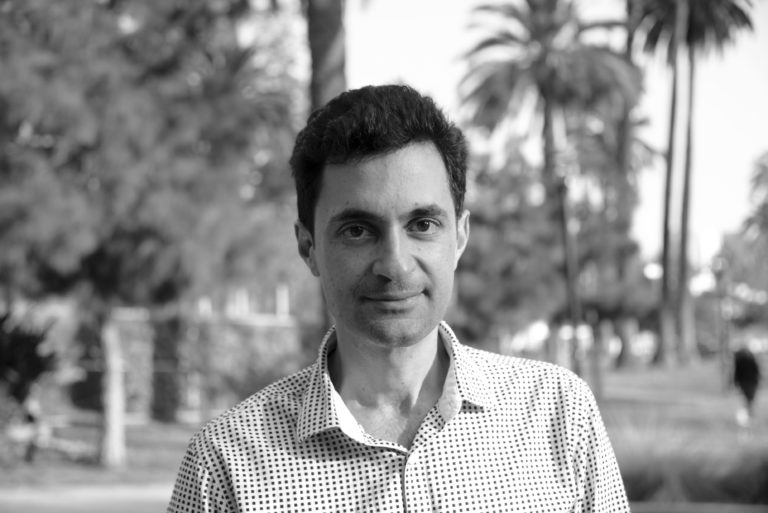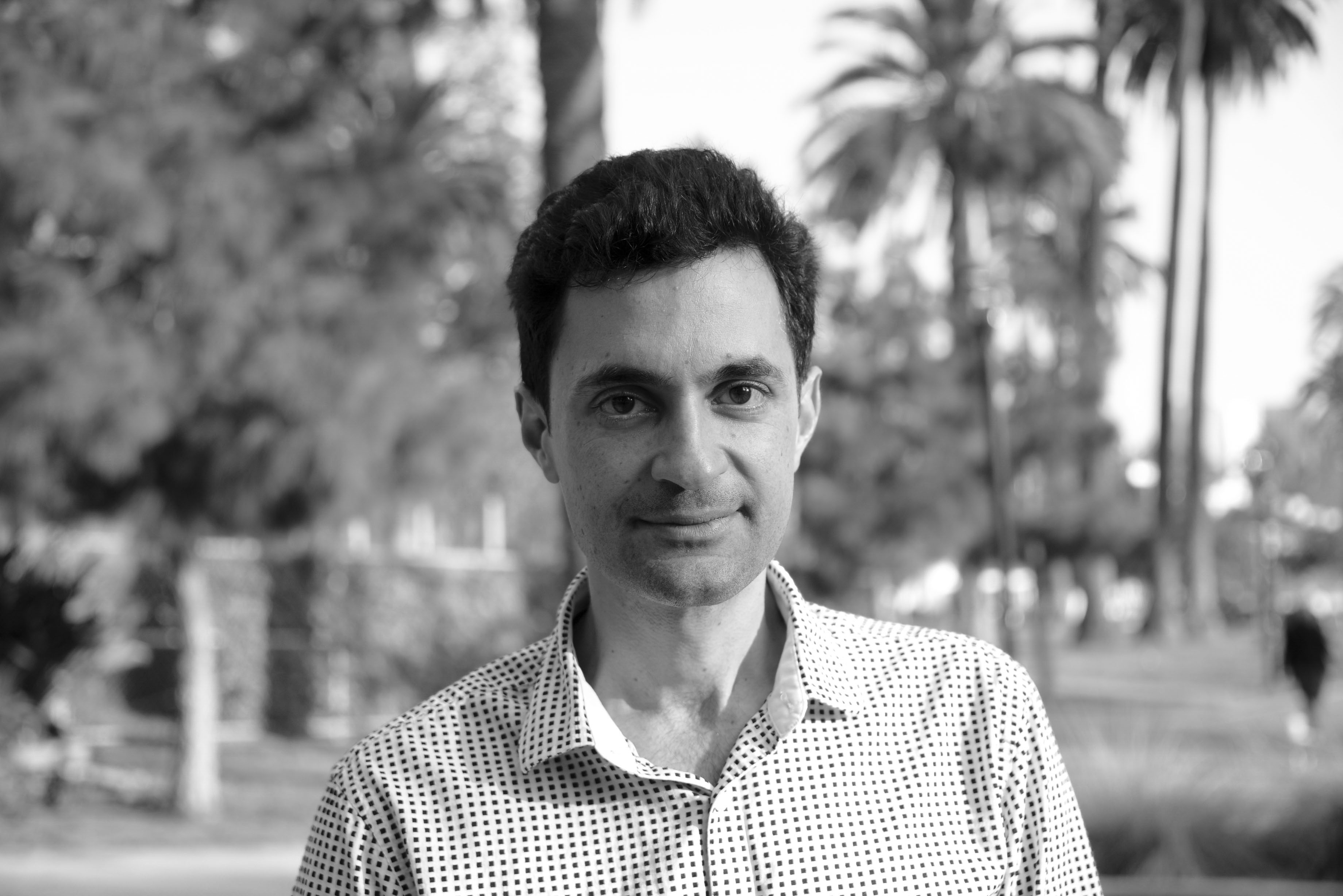7 Questions With ScreenCraft Comedy Contest Winner Robert Troccolo

1) What is your writing process and how long have you been writing?
I get up in the morning before work and write for 3 hours. Usually I write from 6:30 to 9:30am. I also write most of Saturday beginning around 7:30am. I’ve been doing this since 2009— so about 8 years.
2) How have you honed your craft since you began and what resource or activity has been the most helpful in that regard?
There’s nothing better than a writer can do for themselves than to write every day. Or at least 6 days. I believe in the mantra of hard work. There’s no other answer and no short cut.
3) What was the genesis of THE TRIPLE ENGAGEMENT? How many drafts have you done and how much has the story evolved? Having multiple contest finalist placements and wins under your belt now, any advice you would offer screenwriters about potentially entering screenplay competitions?
I was engaged. But that’s also misleading because nothing in the script actually happened to me. In other words, it’s not about my engagement. I just wanted to write a script about the idea of being engaged. This is where ideas come from: I have documents full of loglines. I’ve been keeping this since I started writing. These ideas come from incessant reading, watching TV, and living life.
When I was starting out I used to spend longer on scripts. You want to learn your craft first and then learn to do it quicker. Nowadays I’ll usually spend 2 - 3 months on a script, let it sit for a bit— during which time I get feedback from both friends and professionals— and then do rewrites for another draft. In between I’m always working on other projects. I can’t say specifically how many drafts I’ve written but that’s the timeframe.
In the past, I entered one or two contests but really in the last year is when I started sending my stuff out. The Triple Engagement was also a quarter-finalist in the Page Awards and made the second round of the Austin Film Festival Script Competition. Another script I wrote, The Mayor of Reagan County, was a Top 12 Finalist for the Scriptapalooza Fellowship, a 2016 Scriptapalooza Quarter-Finalist, and made the second round of the Austin Film Festival Script Competition. Another script, The Friendzone, was a 2016 Scriptapalooza Quarter-Finalist.
So, as you can see from that, my advice to other screenwriters entering contests is not to live and die by one script. It’s a business after all. It should be what you love doing but it should also be work. The goal is to eventually be called upon to turn out scripts in a relatively quick amount of time and you have to be ready to do it. You want to be good at what you do but you also want to be professional. Also, if you have a lot of scripts and they’re busy bashing one you can just say to yourself, “Well what do I care about that old thing— I’ve written 2 more scripts since then!”
4) What kind of stories are you drawn to tell? Favorite genre? What other projects do you have besides THE TRIPLE ENGAGEMENT?
Lately I’ve branded myself as a comedy writer. This is intentional. My thinking is that if someone likes one of my scripts, they’ll like the others as well. And, as you can start to tell from what I’ve answered above, I’ve written quite a bit.
The Mayor of Reagan County is a political comedy about a small town conservative mayor who, after an assassination attempt, decides he no longer wants to be mayor. However, he can’t quit because his family goes back 12 generations of mayors. So, he tries to get fired by passing liberal reforms and just calling them conservative. But the reforms take off and he becomes more popular than ever… all the while afraid of the next assassination attempt.
I just wrote another quirky family-centered comedy called Little Bob about an eight year old girl whose parents get divorced and is stuck living with her father and her teenage sister. To cope with the divorce, the girl starts dressing as 1966-era Bob Dylan— all in black with a wig and sunglasses— and speaking in Dylan-esque wheezes and mumbles. Her father and sister have to figure out how to get her speaking again.
Another one is a haunted house comedy called This House Represents My Inner Darkness and My Inner Darkness is This House. It’s about a washed up satanic rock star who loses his girlfriend to a younger, up-and-coming satanic rock star and decides to get his mojo back before the girlfriend marries the up-and-comer. So he buys the house where a Manson Family-like serial murder occurred in the hopes that it will inspire his inner darkness and he’ll create another sick masterpiece. The problem is that when he’s in the house trying to be dark and brooding he meets the ghosts of the murder victims who are all really nice and life affirming. They threaten to spoil his dark album with good vibes.
I don’t know… I’ve written more. The Friendzone, which I mentioned above, is self explanatory, and then another one called Dick Cheney Loves You which is a cynical comedy about the Iraq War.
5) What’s the best operating principle or piece of advice on screenwriting you’ve ever gotten?
I don’t know that I’ve ever gotten any screenwriting advice! I just write every day.
6) Who are your writing influences?
My favorite screenplay is The Bad News Bears by Bill Lancaster.
Beyond that it’s the usual suspects: Billy Wilder, Woody Allen, Groucho Marx (Not really a screenwriter, I know.) If the logline to Mayorabove sounds like a Mel Brooks movie, well…
I’d just say that one cool thing about living in Hollywood is that you get to meet some of your influences. I met Matthew Weiner at a WGA event. I met Buck Henry at a deli. I got tongue tied talking to Matthew Weiner but that prepared me for being calmer by the time I met Buck Henry.
7) What are your short-term and long-term goals in the industry? What have you been able to do in your career so far and what would you like to do next?
My short term goal is the current script I’m working on. I’ve spent a lot of time working on my craft and I’ve just started working on turning this into a business. My long term goal is to be a paid working professional writer. Uh… but I should also add that I love my day job and have no intention of quitting anytime soon.
Tags
Get Our Screenwriting Newsletter!
Get weekly writing inspiration delivered to your inbox - including industry news, popular articles, and more!






















